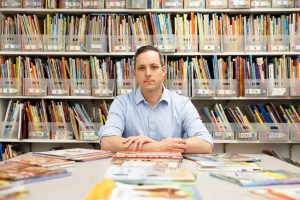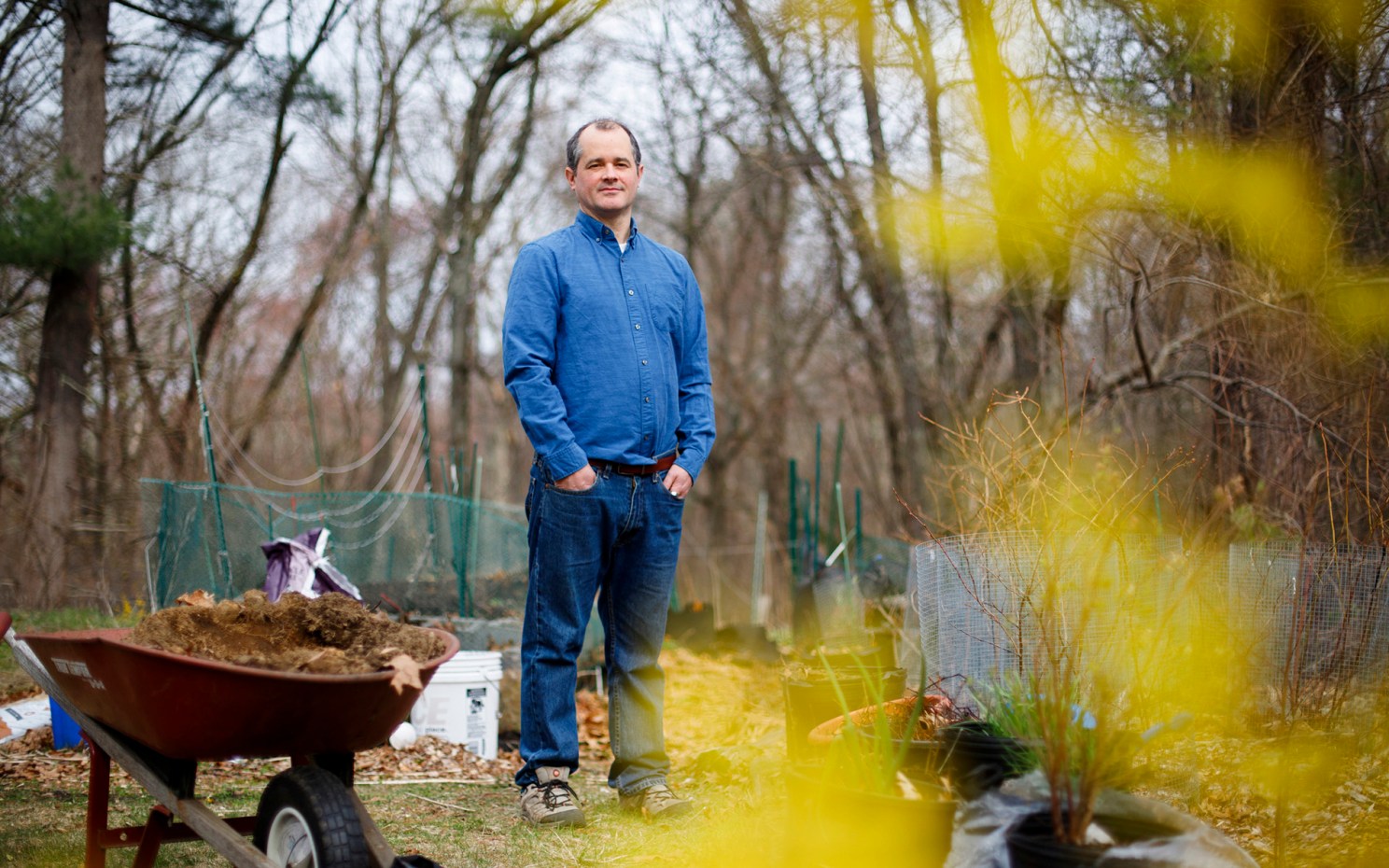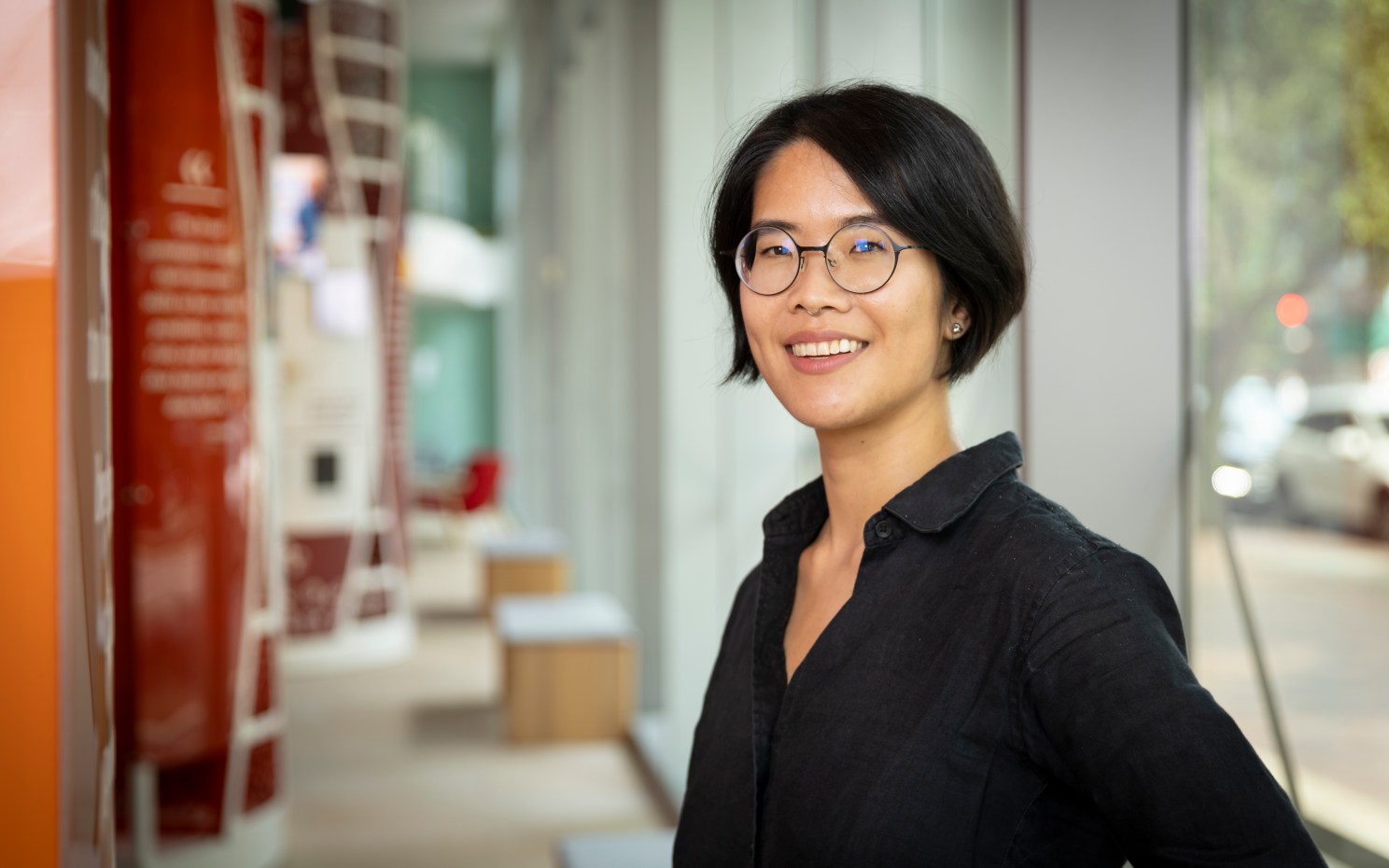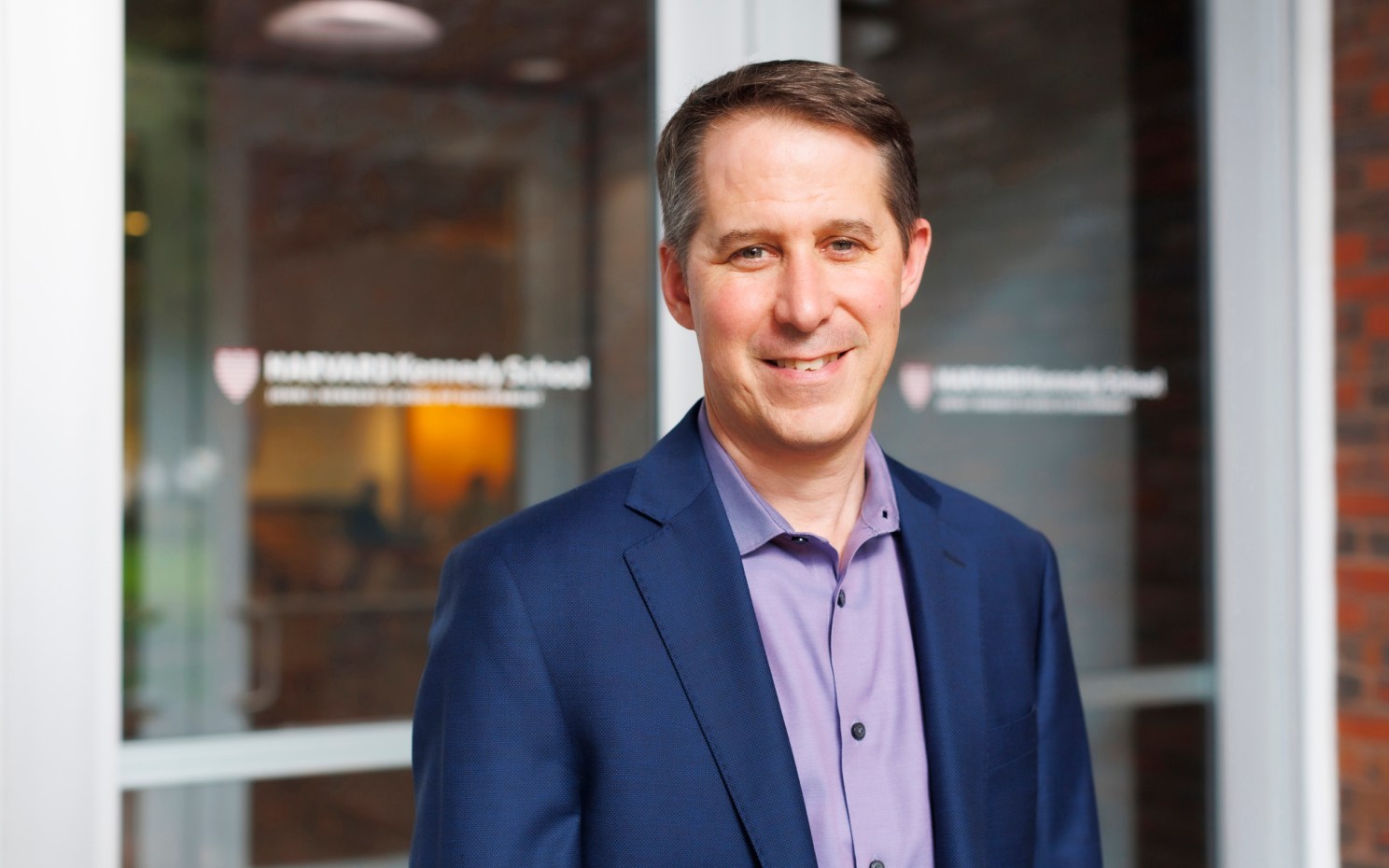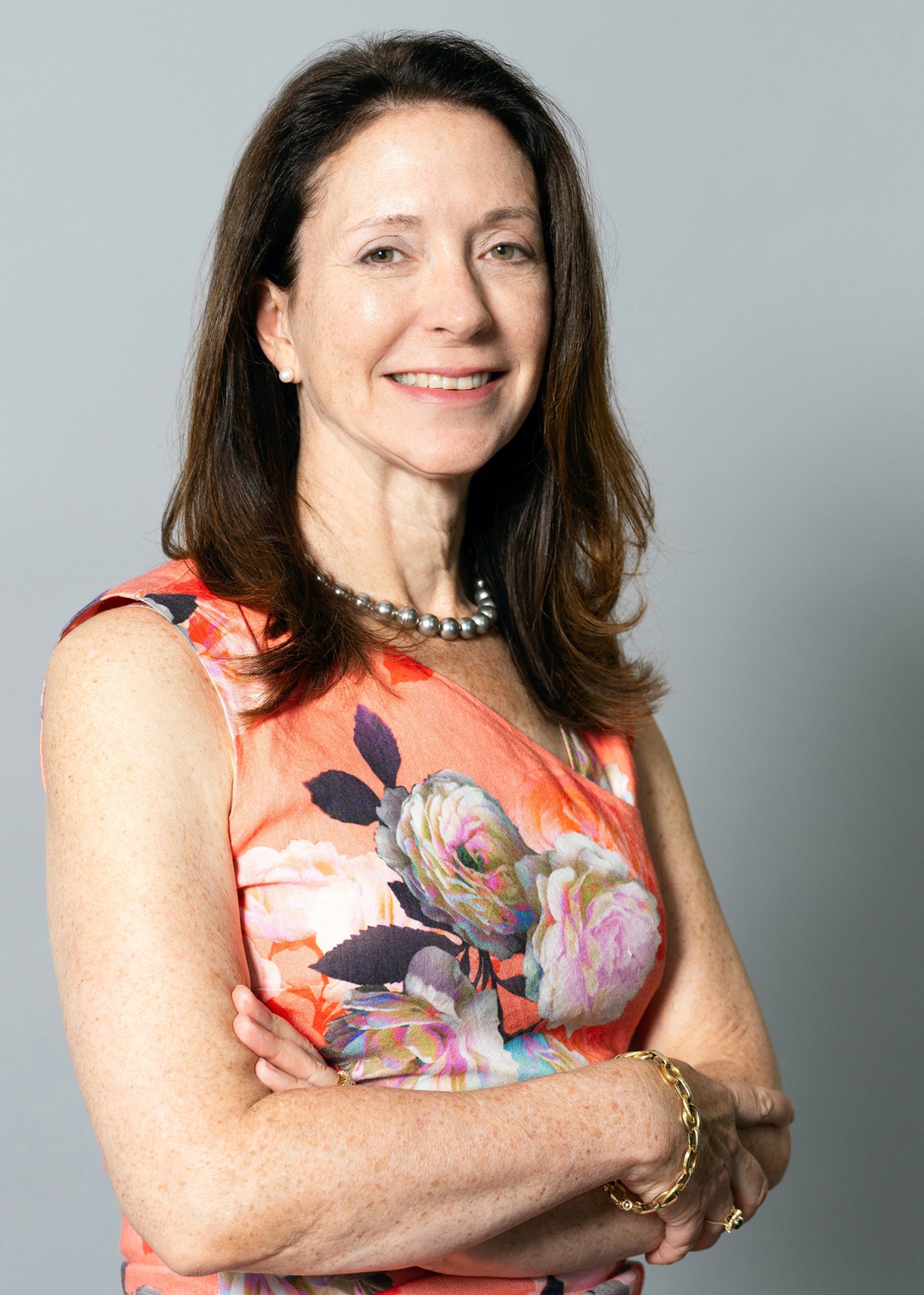
Photo by Juliana Sohn
Someone stole Karestan Koenen’s future. She took it back.
Trauma expert speaks from brutal experience
Karestan Koenen didn’t offer the most uplifting message when she addressed students at her Montclair, New Jersey, high school in 2017, but she did offer hope.
“Bad things are going to happen to you,” Koenen, who had returned to her alma mater to receive the school’s distinguished alumna award, told the audience. “Some of you may already have experienced such things or are experiencing them now. We cannot completely control what happens to us, but what we can control is how we choose to respond. And what we choose makes all the difference.”
“Such things” had happened to Koenen decades before. In 1991, she joined the Peace Corps, fulfilling a dream of her youth. She saw her posting in Niger, one of the world’s poorest countries, as a step toward a career in international development. The assignment would enhance a resume that already included a trip to Kenya, college courses in economics and African history, an internship at the U.S. Agency for International Development, and a yearlong job evaluating developing nation debt at the Federal Reserve Bank of New York.
But just months later, having quit the Peace Corps and abandoned her plan to work in international development, she fell into a period of severe depression marked by suicidal thoughts, sleeplessness, and nightmares linked to the rape she experienced while on a holiday trip with her visiting sister.
“I remember feeling like I was in a dark tunnel and I could see no light,” Koenen said in a recent interview. “It was just getting darker and darker, no matter what I did.”
Koenen would eventually recover, but it wasn’t easy and she needed help. In the process, she became curious about the psychology of healing and how she might support others similarly shattered. She wondered why some people healed quicker than others, and why, for some, healing never seemed to come.
Today, Koenen doesn’t shy from sharing the darker parts of her story, knowing that she’s not alone. A professor of psychiatric epidemiology at the Harvard T.H. Chan School of Public Health, she is one of the nation’s top experts in trauma and post-traumatic stress disorder. As the leader of a new initiative at the Broad Institute of MIT and Harvard exploring the biology of trauma, she hopes to expand understanding of the condition and in turn unlock new treatments.
“The big question is how traumatic experience can get under the skin and cause disease,” Koenen said. “PTSD and trauma have been linked to cardiovascular disease, diabetes, autoimmune disease. How does that happen? The idea is that understanding more will help us intervene better.”
‘People wrote me letters. I didn’t write back.’
The assault happened in December 1991 in the Sahara Desert city of Agadez. Koenen was sent back to the U.S. in what the Peace Corps called a “medevac.” When she arrived in D.C., she expected to follow the agency’s protocol for sexual assault victims before returning to her post.
It didn’t happen. Instead, there were weeks of meetings, physical examinations, and counseling, none of them helpful. By February, Koenen was living at her parents’ New Jersey home, sleeping in a room over the garage. When her request that the rapist be prosecuted was denied by officials in Niger — dismissed as “he said, she said” — any thoughts of returning to the country evaporated.
“I just thought, ‘I’m done,’” she said. “I totally cut off everything from Peace Corps. Except for one person, I did not stay in touch with anyone. People wrote me letters. I didn’t write back.”
At age 23, Koenen found herself dangerously adrift. Her early taste of development work had awakened her to the field’s challenges: stifling bureaucracy, poor project design, mismatches between donor intent and on-the-ground realities. The attack and its aftermath crushed the last of her idealism. She spent days sleeping, lying in bed, and walking the streets of her parents’ neighborhood. She felt aimless and suicidal — classic signs of post-traumatic stress disorder she would instantly recognize today.
One day, a friend of Koenen’s mother invited her over for dinner. She told Koenen that she had been raped in high school, and that the attack had left her pregnant. She too had played the assault over and over in her mind. She too had endured nightmares and countless moments of terror. She lost the baby when she intentionally crashed her car into a tree.
Until now, the woman said, she had told no one but her husband about the attack. But keeping it hidden hadn’t helped. Instead, the rape had plagued her, affecting decisions she made every day. She wanted her young visitor to avoid the same fate. As the conversation ended, the friend said she had already made Koenen’s first appointment with a therapist.
“I didn’t grow up with people doing therapy,” Koenen said. “But by the time she talked to me, I would have done anything.”
The therapist diagnosed post-traumatic stress disorder, and pointed out that the rapist had done more than attack Koenen physically — he had stolen her future. As she began to rebuild her life, therapy included aptitude and occupational tests to help her envision a new beginning.
“There’s perfect overlap between the substance of her scientific work and her values as a human being, as a survivor herself.”
Mike Lyons, retired Boston University professor
At home, Koenen read books about rape, trauma, and PTSD. She also started to view her family in a new light. Her father, a Vietnam-era veteran, had friends who’d been scarred by combat. During long talks with her grandmother, she got to know her late grandfather, who had been wounded in World War II and endured decades of regular nightmares.
“He probably had PTSD his whole life, although I never knew that’s what it was until after he died,” Koenen said. “The men that I grew up around were veterans. I heard their stories and I actually think that probably set the stage for me in a way that I didn’t realize until later.”
Koenen committed herself to a new goal: help others who had suffered trauma as she had. She went back to school, studying for a master’s degree in developmental psychology from Columbia University. After Columbia, she headed to Boston University for a doctoral program in clinical psychology.
At BU, Koenen connected with Professor Mike Lyons, who was investigating substance abuse and mental illness using a database of Vietnam veteran twins. If Koenen would work with him on his research, he said, she could use the database for her work on PTSD. Koenen agreed, and that project would give her an early chance to explore the genetics of trauma.
“She’s been a real pioneer in looking at the genetic influences of PTSD and responses to trauma,” said Lyons, who retired from BU in July. “She’s a wonderful person. She’s very open, very engaging, very committed to social justice, committed to survivors of trauma. There’s perfect overlap between the substance of her scientific work and her values as a human being, as a survivor herself.”
‘I didn’t have to pretend anymore.’
Several years later, in 2011, Koenen, now a professor Harvard, heard from a friend about a segment on ABC’s “20/20” in which six women described experiences with the Peace Corps that were strikingly similar to hers.
Two decades had passed, but none of the details had faded.
In the days following the attack, Koenen was treated by a Peace Corps physician who opened her house to her and her sister. But the agency’s response went downhill from there.
Back in Washington, she endured an uncomfortable pelvic exam conducted by a male gynecologist who, when she complained, told her to stop being hysterical, she would later testify. She was treated by a therapist who seemed to know little about trauma, Koenen recalled, pushing her to disclose more about her emotions than she was comfortable with and threatening that she wouldn’t be able to return to Niger if she didn’t comply.
Koenen also met with an official from the inspector general’s office, whom she remembers casting doubt on her account of the rape. In the end, she would describe her treatment by the Peace Corps as even worse than the assault.
After viewing the “20/20” episode, Koenen wrestled with what to do. Over the years, when people asked how she became interested in PTSD, she never included her own ordeal in her answer. This time, she decided, she had to speak up.
Koenen connected with a friend of a friend who worked as a producer for “20/20” host Brian Ross. Soon after, in May 2011, she told her story in an interview that aired on “Good Morning America.” Later that day, Congress held hearings on safety in the Peace Corps, with Koenen on the witness list. She offered the House Foreign Affairs Committee not just her story, but a list of ways the system could be reformed.
Increase the number of victim’s advocates, she said. Provide travel companions for those returning to the U.S. Scrap a training video in which victims apologize for causing their own rapes. Fire any staff member who blames the victim.
In the same hearing, then-Peace Corps Director Aaron Williams said Koenen and the other witnesses were “courageous” and pledged major changes to the agency’s handling of such cases. Months later, President Obama signed the Kate Puzey Peace Corps Volunteer Protection Act, named for a volunteer who was murdered in 2009 while serving in Benin. The measure included reforms addressing the agency’s treatment of sexual assault victims.
As she navigated the publicity around her story, Koenen realized that the attack wasn’t actually behind her. It didn’t make sense, but she still carried shame over what had happened, over her subsequent depression and thoughts of suicide. At the same time, talking about her past seemed to be leading her to a turning point. Then came the day she jumped in a cab after a CNN interview and felt as if a weight had been lifted.
“I didn’t have to pretend anymore,” Koenen said during her 2017 talk in Montclair. “The worst thing that had ever happened to me was out there for everyone to see. … And I was OK. More than OK, really. I felt better.”
Koenen was recruited to Columbia as an associate professor of epidemiology. Four years later, she returned to Boston as a professor of psychiatric epidemiology at the Chan School, an institute member of the Broad Institute of MIT and Harvard, and an investigator in psychiatry at the Mass General Research Institute. At the Broad, she is a member of the Stanley Center for Psychiatric Research, led by former Harvard Provost Steven Hyman.
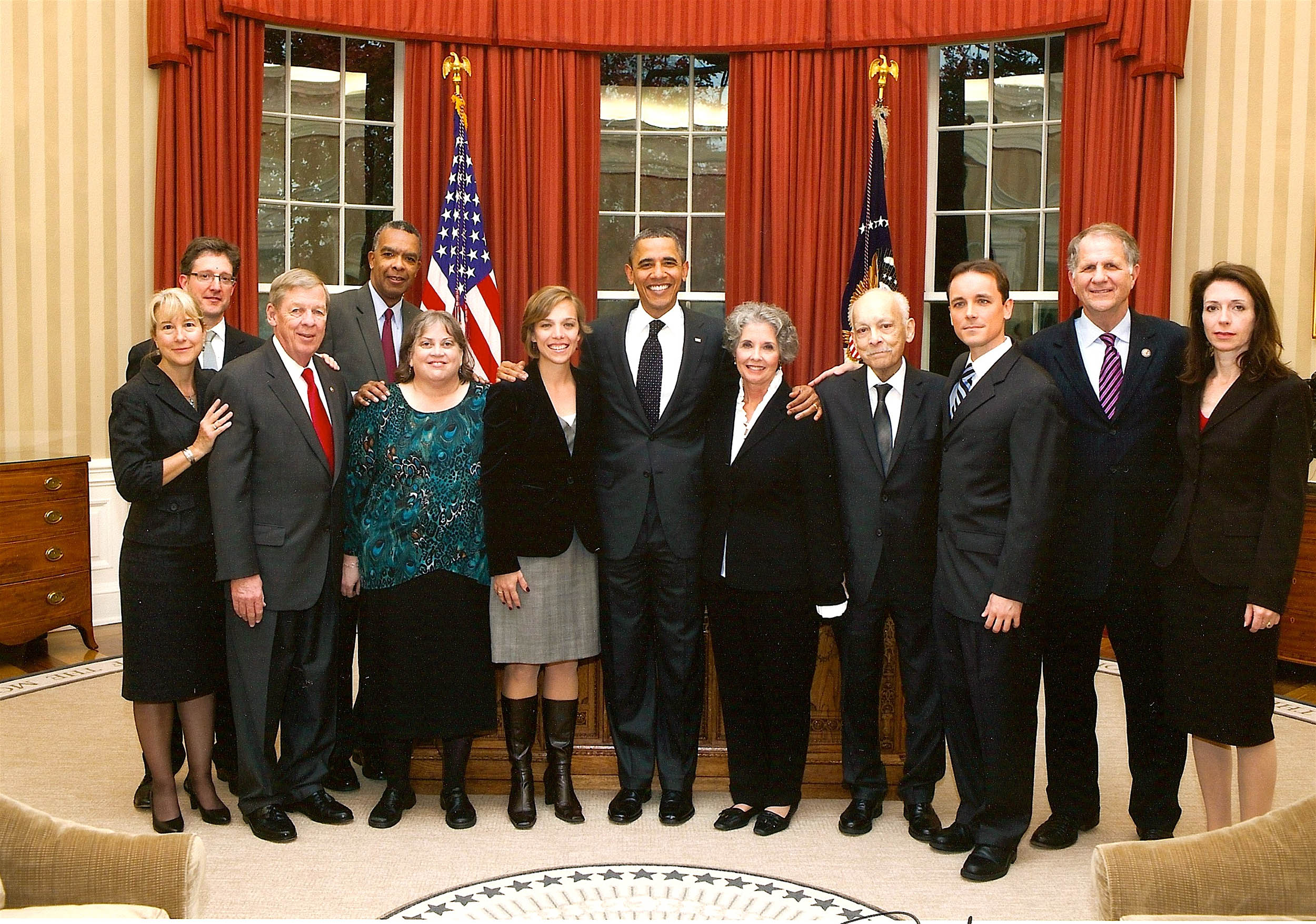
Koenen (far right) with President Obama and others in 2011 after passage of the Kate Puzey Peace Corps Volunteer Protection Act.
Courtesy of Karestan Koenen
For several years, Koenen led a major effort at the Stanley Center to begin filling yawning gaps in psychiatric genetic studies among African populations. She collaborated with researchers in four countries to collect DNA samples from 40,000 subjects suffering from schizophrenia, bipolar disorder, and other disorders. She also conducted research on PTSD among war veterans and on the long-term effects of early childhood trauma.
“It was an enormous effort,” Hyman said. “She’s a great team builder, and with her teams, she created a remarkable program.”
In 2021, the Broad started the Biology of Trauma Initiative, with Koenen as its leader. The initiative seeks to understand the biological underpinnings of trauma, which, in addition to mental and emotional effects, has been linked to physical conditions like cardiovascular and autoimmune disease.
“It’s extremely complicated, but Karestan has all the important qualities to make it a success,” Hyman said.
Looking back, Koenen wouldn’t wish her experiences on others, but said her story may offer lessons and inspiration to students and others sifting the wreckage of carefully laid plans.
“I took zero psychology in college,” she said. “I sat in on one class and, literally, I remember thinking, ‘This is dumb. I’m studying economics.’ Sometimes, I think, we may be meant to do things, and the universe pushes you in that direction.”

